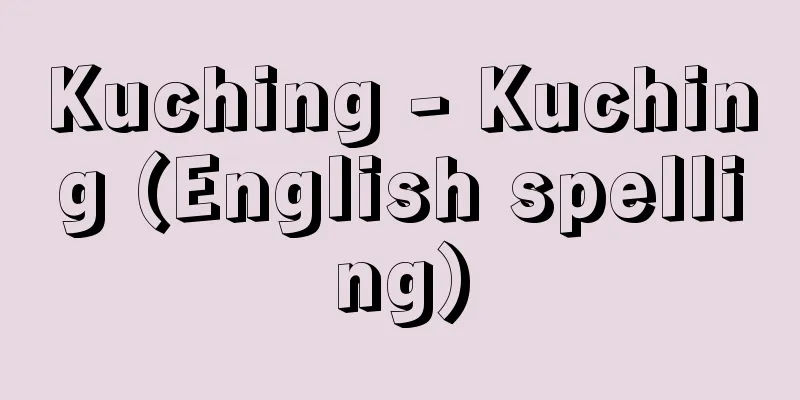Futabatei Shimei

|
Novelist. His real name was Hasegawa Tatsunosuke. He was also known by the pseudonym Reireitei Kyou. He was born in Edo on February 28, 1810 (according to one theory, on October 8, 1820) as the only son of Hasegawa Yoshikazu, a samurai of the Owari clan. He spent the turbulent period from the end of the Edo period to the beginning of the Meiji period in Edo, Nagoya, Matsue, and other places. He initially wanted to become a soldier and protect Japan from Russia's southward expansion policy, but failed the entrance exam for the Army Academy. He then changed his aim to become a diplomat and studied Russian at the Tokyo School of Foreign Studies. However, he became interested in Russian literature while he was a student, and was dissatisfied with the school's merger with Tokyo Commercial School (now Hitotsubashi University), so he dropped out in 1886 (Meiji 19) and started out as a literary man by visiting Tsubouchi Shoyo. In the same year, in his General Theory of Novels, he asserted the theory of realism, which states that one must use phenomena to capture the essence of things, and published Floating Clouds (1887-1889) based on this theory. However, due to ideological turmoil he experienced while writing, he began to doubt the value of ideas and literature, discontinued the novel, and joined the Cabinet Official Gazette Bureau as a civil servant. During his time at the Official Gazette Bureau, he was in charge of translating newspapers in foreign characters, while also searching through domestic and foreign literature in pursuit of the purpose of life and the value of ideas, but in the end he was unable to establish their meaning, and began to desire to engage in business, valuing "real experience." Traces of this exploration are preserved in his memoir, Clearing Fallen Leaves (1889-1894). In 1897 he retired from the Official Gazette Bureau and taught Russian at the Army War College and other institutions, and in 1899 he became a professor at the Tokyo School of Foreign Languages, but his long-held interest in the Japan-Russia issue did not fade, and in 1902 (Meiji 35) as relations between the two countries became tense, he resigned from the University of Foreign Languages and traveled to Vladivostok. However, he did not get along with his local employer, Tokunaga Shoten, so he became the administrative director of the Police Academy in Beijing, run by his old friend Kawashima Naniwa, but here too he had disagreements with Kawashima and returned to Japan in 1903. After returning to Japan, he joined the Asahi Shimbun Company, and after succumbing to the persuasion of those around him, he serialized "Sono Omokage" in the Tokyo Asahi Shimbun in 1906 (published in 1907), marking his return to the literary world. This novel criticizes the inner emptiness of intellectuals who "die" to knowledge and ideas and lack true action, and continues the theme of "Ukigumo." Prompted by the positive reception of this novel, he published "Heibon" in 1907, but he did not intend to end his career as a novelist, and in 1908 he traveled to St. Petersburg as the Asahi Shimbun's Russia correspondent in Tokyo, devoting himself to mutual understanding between Japan and Russia. Unfortunately, he suffered from insomnia soon after arriving, and then developed pneumonia and pulmonary tuberculosis, and died on May 10, 1909, on the Bay of Bengal while on a ship returning to Japan via London. As a literary figure he left behind only three original works and a few translations, and his real life was also a series of failures, but his pursuit of "truth" and his aim to create literature that would govern the country and benefit the people, and his achievements in laying the foundations of modern literature through his insistence on modern realism and the unity of spoken and written texts, are enormous.He also introduced Russian literature to future generations through his translations, including "Ahizuki" and "Meguriahi" (based on original works by Turgenev, both 1888), as well as "Ukikusa" (Turgenev, 1897) and "Kesshoki" (Andreev, 1908).His achievement in compiling Japan's first Esperanto textbook, "A World Language" (1906), cannot be forgotten either. [Shinsuke Togawa] "The Complete Works of Futabatei Shimei, 9 volumes (1964-1965, Iwanami Shoten)" ▽ "Futabatei Shimei, edited by Tsubouchi Shoyo and Uchida Roan (1909, Eifusha/reprint edition, 1975, Museum of Modern Japanese Literature)" ▽ "Supplemented and Expanded Theory of Futabatei Shimei, by Togawa Shinsuke (1984, Chikuma Shobo)" ▽ "The Life of Futabatei Shimei, by Nakamura Mitsuo (Kodansha Bunko)" ▽ "Futabatei Shimei, by Odagiri Hideo (Iwanami Shinsho)" [Reference] | |National Diet Library Futabatei Shimei Source: Shogakukan Encyclopedia Nipponica About Encyclopedia Nipponica Information | Legend |
|
小説家。本名長谷川辰之助(はせがわたつのすけ)。別号冷々亭杏雨(れいれいていきょうう)。尾張(おわり)藩士長谷川吉数(よしかず)のひとり子として元治(げんじ)元年2月28日(一説には文久(ぶんきゅう)2年10月8日)江戸に生まれる。幕末から明治初年にかけての動乱期を江戸、名古屋、松江などで過ごし、最初は軍人となってロシアの南下政策からわが国を守ろうと考えたが、陸軍士官学校受験に失敗、外交官志望に転じて東京外国語学校でロシア語を学んだ。しかし在学中にロシア文学に興味をもち、学校が東京商業学校(現一橋大学)に合併されたことを不満として、1886年(明治19)退学、坪内逍遙(つぼうちしょうよう)を訪ねて文学者として出発した。同年『小説総論』において、現象を借りて本質を写さなければならぬというリアリズムの理論を主張し、それに基づいて『浮雲(うきぐも)』(1887~1889)を発表したが、執筆中に生じた思想的動揺から観念や文学の価値を疑い、小説を中絶し、内閣官報局に入って官吏となった。官報局時代の彼は外字新聞の翻訳を担当するかたわら、内外の文献をあさって人生の目的や観念の存在価値を追求したが、結局それらの意味を確立することができず、「実感」を重んじて実業に従事したいと願うようになった。この探究の跡は手記『落葉のはきよせ』(1889~1894)に残されている。1897年官報局を退職、陸軍大学校などでロシア語を教え、1899年には東京外国語学校教授に就任したが、年来の志である日露問題への関心は消えず、両国の関係が緊迫化した1902年(明治35)外語大を辞任してウラジオストクに渡った。しかし現地の受け入れ先、徳永商店と肌があわず、北京(ペキン)で旧友川島浪速(かわしまなにわ)が主宰する警察学校の事務長となったが、ここでも川島と意見が対立して、1903年帰国した。 帰国後朝日新聞社に入社した彼は、周囲の説得に屈して1906年『其面影(そのおもかげ)』を『東京朝日新聞』に連載(刊行は1907年)、文壇に復活した。この小説は、知識や観念のために「死了」して真の行為を欠く知識人の内面の空白を批判したもので、『浮雲』の主題を引き継いだ作品である。この小説の好評に促されて1907年『平凡』を発表したが、小説家で終わるつもりはなく、1908年、朝日新聞露都特派員として日露の相互理解に尽くすべくペテルブルグに向かった。しかし不運にも着任早々不眠症に悩み、ついで肺炎と肺結核を併発して、ロンドン経由、船路帰国の途中、明治42年5月10日ベンガル湾上で没した。 文学者としての彼はわずか3編の創作といくつかの翻訳しか残さず、その実生活も失敗の連続に終わったが、「真理」を追求して経世済民の文学を目ざし、近代リアリズムと言文一致の主張によって近代文学の基礎を築いた功績はきわめて大きく、また翻訳においても『あひゞき』『めぐりあひ』(ツルゲーネフ原作。ともに1888)はじめ、『うき草』(ツルゲーネフ、1897)、『血笑記(けっしょうき)』(アンドレーエフ、1908)などのロシア文学を紹介し、後世に多大の影響を与えた。わが国最初のエスペラント語の教科書『世界語』(1906)を編纂(へんさん)した功績も忘れることができない。 [十川信介] 『『二葉亭四迷全集』全9巻(1964~1965・岩波書店)』▽『坪内逍遙・内田魯庵編『二葉亭四迷』(1909・易風社/復刻版・1975・日本近代文学館)』▽『十川信介著『増補二葉亭四迷論』(1984・筑摩書房)』▽『中村光夫著『二葉亭四迷伝』(講談社文庫)』▽『小田切秀雄著『二葉亭四迷』(岩波新書)』 [参照項目] | |国立国会図書館所蔵"> 二葉亭四迷 出典 小学館 日本大百科全書(ニッポニカ)日本大百科全書(ニッポニカ)について 情報 | 凡例 |
<<: Futaba Nursery School - Futaba Nursery School
>>: Futaba Suzuki Ryu - Futaba Suzuki Ryu
Recommend
Časlav (English spelling) Caslav
...The Serbs converted to the Eastern Orthodox Ch...
Black rat
It is a member of the rodent family of the mammal...
SIPE - SIPE
...Music continued to be used to treat melancholi...
minuscule
…In the 3rd century, the Latin uncial and semi-un...
Zonguldak - Zonguldak (English spelling)
A port city on the Black Sea in the northwest of ...
Kinshincho - Kinshincho
...There are also various types of intimacy among...
Sora
A haiku poet from the early Edo period. Born in Sh...
At-Tāif (English spelling)
A city in the Hijaz region of western Saudi Arabia...
Karishiki - Karishiki
Also called "kashiki." A type of self-su...
Parrotfish (Budai) - Parrotfish
A general term for marine fish of the Scaridae fam...
Bitchu Province - The Land of Bitchu
The old name of the western part of Okayama Prefe...
margin
…The core of the book is found in Chapter 5, “The...
Kasago - Kasago
Rakugo. Two go opponents insult each other and en...
Tomonzen - Tomonzen
A compilation of Korean classical Chinese literatu...
Jostedalsbreen - Jostedalsbreen (English name)
It is the largest glacier in Norway and Europe, lo...




![Kasakake [town] - Kasakake](/upload/images/67cb31423ff3c.webp)




